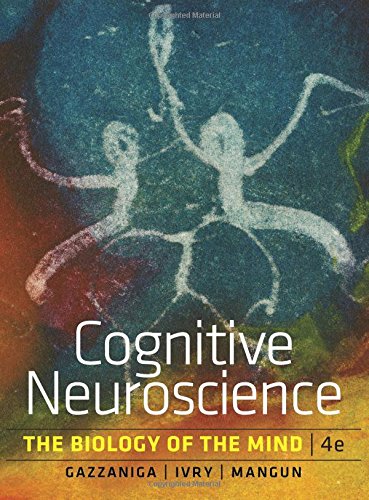Cognitive Neuroscience: The Biology of the Mind ebook download
Par lynch randy le mardi, juin 21 2016, 04:29 - Lien permanent
Cognitive Neuroscience: The Biology of the Mind by G. R. Mangun, Michael S. Gazzaniga, Richard B. Ivry


Cognitive Neuroscience: The Biology of the Mind download
Cognitive Neuroscience: The Biology of the Mind G. R. Mangun, Michael S. Gazzaniga, Richard B. Ivry ebook
Publisher: W. W. Norton & Company
Page: 185
Format: pdf
ISBN: 0393972194, 9780393972191
The second is that neuroscience has already told us lot, just not the sort of things we may think it has. The area of overlap between different disciplines, including cognitive neuroscience and education, has been identified as a transdisciplinary field of study called educational neuroscience or neuroeducation. Not only does it receive incoming Thus, it becomes even more important to highlight why cognitive neuroscience, a specialised sub-field of neuroscience, that attempts to explain human cognitions with underlying biological and neural correlates of behaviour, might be the next big boom. I was basically interested in the ways that cognitive neuroscientists and psychologists had come to understand and do research on a thing called 'autism.' I wanted and humanists moved by the possibility of a felt, embodied layer of knowledge, deeply entangled with what we understand as a conscious awareness, and colleagues who remain sceptical of (what they see sometimes see as) older biological-essentialist rhetorics, now dressed in new theoretical clothing. Sternberg, now in medical school, in a recent paper in the Journal of Cognitive Neuroscience. Cognitive science is the interdisciplinary investigation of mind and intelligence, embracing psychology, neuroscience, linguistics, philosophy, anthropology, and computational intelligence. Cognitive neuroscience describes the scientific study of biological substrates of cognition (attention, memory, problem solving) and affective neuroscience is the study of the brain bases of emotions and feelings. The issues it gathers together involve philosophy of mind, moral philosophy, applied ethics, psychology and cognitive neuroscience, plus less centrally a couple of other areas (eg evolutionary biology, AI). Gazzaniga, M.S., Ivry, R.B., & Mangun, G.R. This is the question posed by Professor of Biology, John Lisman and his former undergraduate student, Eliezer J. Before long, I was reading graduate neuroscience textbooks and then scientific journals. Here are some of the reasons: 1. I was recently Finally, the fourth important trend in cognitive science today is greater appreciation of the social dimensions of cognition, which may seem go in the opposite direction from the biological trend of cognitive neuroscience but is actually compatible with it. Deconstructing the most sensationalistic recent findings in Human Brain Imaging, Cognitive Neuroscience, and Psychopharmacology The first and foremost reason why we shouldn't simply disown neuroscience altogether is an obvious one: if we want to understand our minds, from which all of human nature springs, we must come to grips with the brain's biology. Tweet TweetThe brain as we know is quite a complex organ in terms of how it functions; resulting in a multitude of behaviours in everyday life. Cognitive Neuroscience: The biology of the mind (2nd ed.). Brain & Cognition, 43, 112- 117.